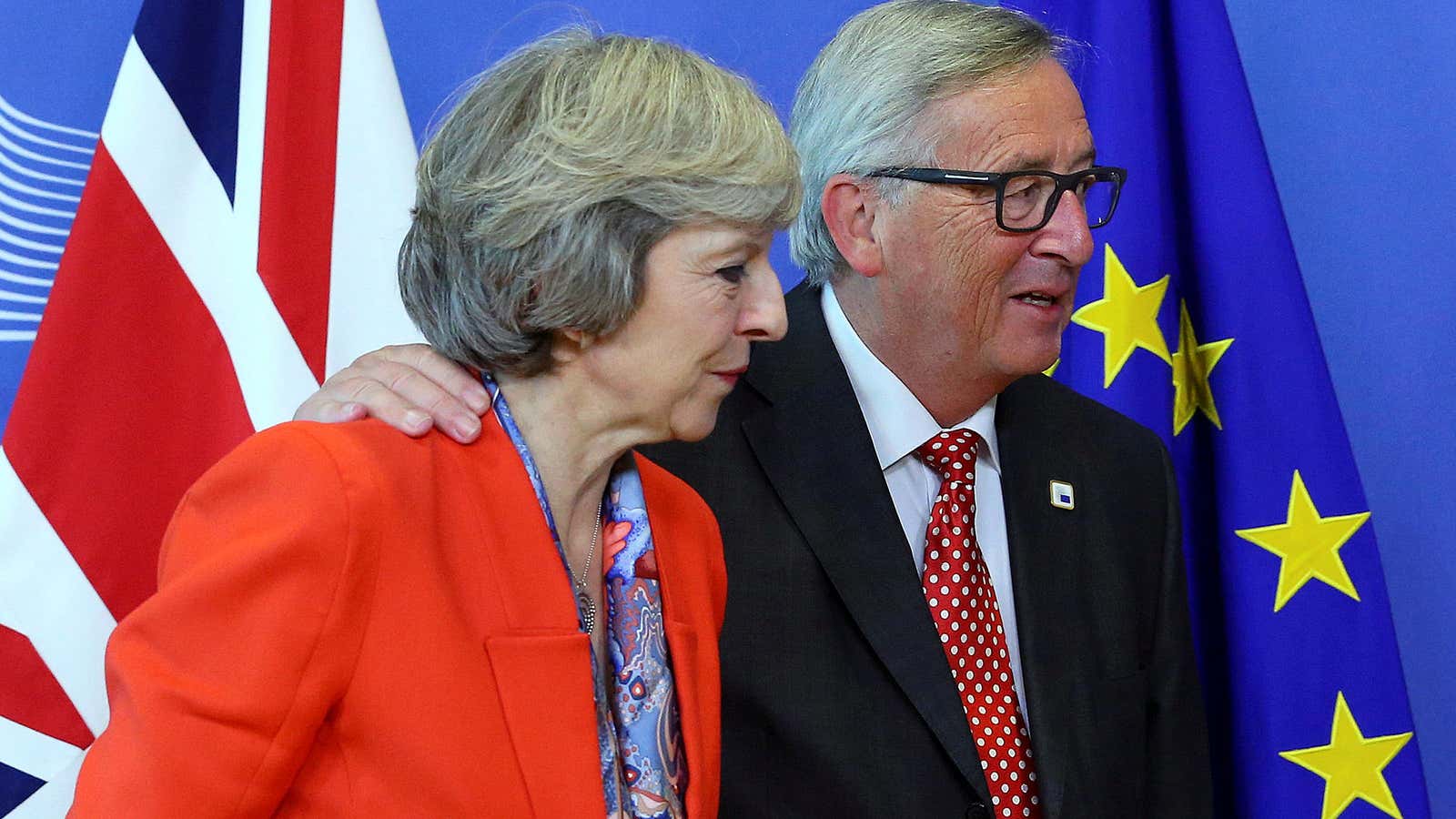UK prime minister Theresa May called a snap election on April 18 in a bid to strengthen her hand in the run up to the Brexit negotiations. But her political gamble backfired horribly. Instead of increasing her parliamentary majority, Britain will now have a hung parliament (where no party has a majority in the 650-member chamber).
Parties now have to scramble to create a deal or coalition to form a government. And Britain now has far more in common with its European neighbors.
Coalition governments, long touted as more representative of a diverse electorate, have defined mainland European politics for the last century. In countries like Germany, Belgium, and the Netherlands, political parties usually fail to win enough seats in parliament to govern on their own. They are therefore forced to make alliances with others to scrap together enough votes to form a government in parliament—a process that can take months in Europe.
In contrast, the UK has had few coalition or minority governments, a point May was keen to point out at the beginning of the year. “Our political traditions are different,” May said as she set out her 12-point plan for Brexit. “We have little history of coalition government.”
Britain had 20 governments in the last century, according to University College London’s constitution unit—five were coalitions and five were minority governments. The last minority government ruled in the year before the 1997 election.
Hung parliaments tend to empower smaller parties, who can extract important compromises from larger parties keen to govern. When Britain has had a hung parliament, coalitions were formed quickly. In 2010, the most recent example of a coalition government, the Conservatives formed a coalition with the Liberal Democrats five days after the election was called, giving the Lib Dems their first real taste of power in 2010.
But the decision to form a coalition with the Conservatives was, in the end, disastrous. The Liberal Democrats went from winning 57 seats in parliament in 2010 to just eight seats in 2015. The Liberal Democrats would therefore be cautious of jumping into bed with the Conservatives again.
The same story played out in the Netherlands this year; the Dutch Labour Party suffered heavy losses on election night after getting into coalitions with the center-right VVD party.
There’s also one less party to do business with. UKIP, the right-wing populist party that was instrumental in Brexit happening, has been wiped off the British political landscape.
